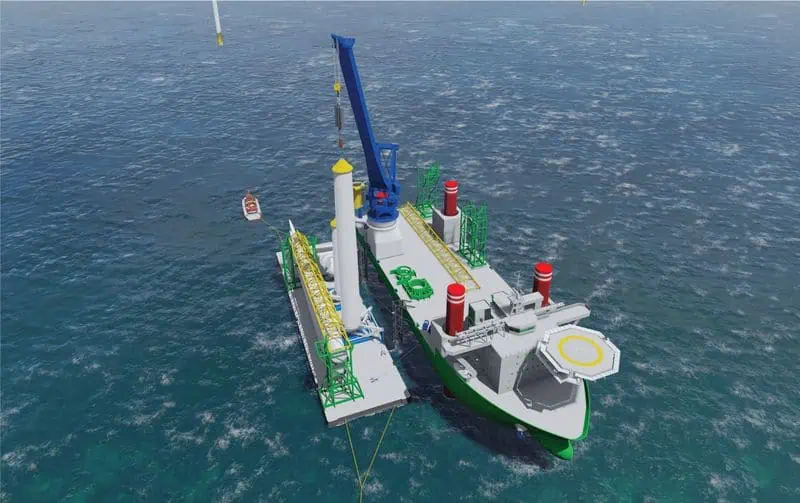Barge Master successfully develops motion-compensating solutions for the offshore industry. By means of machines developed in Rotterdam, it is still possible to work accurately and safely on the open sea with significant wave motions. Due to their recent innovation on their existing technology, the solution now also offers great added value for the construction of offshore wind farms and thus makes an important social contribution to the energy transition. Barge Master will receive a total capital injection of €7.5 million from the Energy Transition Fund Rotterdam and the existing shareholders.
Shorter construction time, lower costs and lower CO2 emissions
A major challenge in the construction of offshore wind farms is the transport of the wind turbine components from the port to the wind farms located far off the coast. The current method involves expensive installation vessels sailing up and down to pick up the components. Barge Master has designed a motion-compensating platform, the ‘Feeder’, which can be easily installed on existing vessels. These machines keep the large turbine parts in balance so that they can be craned to the installation vessel at sea.
In this way, the installation vessel can remain at sea and continue to install, while being continuously supplied with new wind turbine components. Existing installation vessels can therefore be deployed more efficiently and have a longer lifespan. The result is a shorter construction time, lower investments and a more competitive price for offshore wind energy. Barge Master’s solution achieves an average CO2 saving of 100 kilotons per year.
Barge Master contracted to realize the first large-scale offshore wind farm in the US
Barge Master recently signed a multi-year contract with DEME, one of the world’s largest wind farm contractors, for the construction of the first large-scale commercial offshore wind farm in the United States, Vineyard Wind 1 (804 MW). The contract with DEME requires a total of four Feeder platforms. Thanks to the capital injection, Barge Master can finance the construction of these machines, which can also be used for other offshore wind farms in the future.
Rotterdam worldwide center of excellence for maritime technology
Dutch companies are used for the development and construction, mostly from Rotterdam and the surrounding area, creating temporarily 89 and structurally 15 jobs in the region. This strengthens Rotterdam’s role as a global center of excellence in maritime technology. In the future, the technology can also be used for the construction of offshore wind farms off the coast of the Netherlands.
Chantal Zeegers, alderman of Rotterdam for climate, building and living: “Proud that we can contribute to this green entrepreneurship through the Energy Transition Fund Rotterdam. It is these types of entrepreneurs, these types of solutions, that contribute to the major climate challenge we face.”












